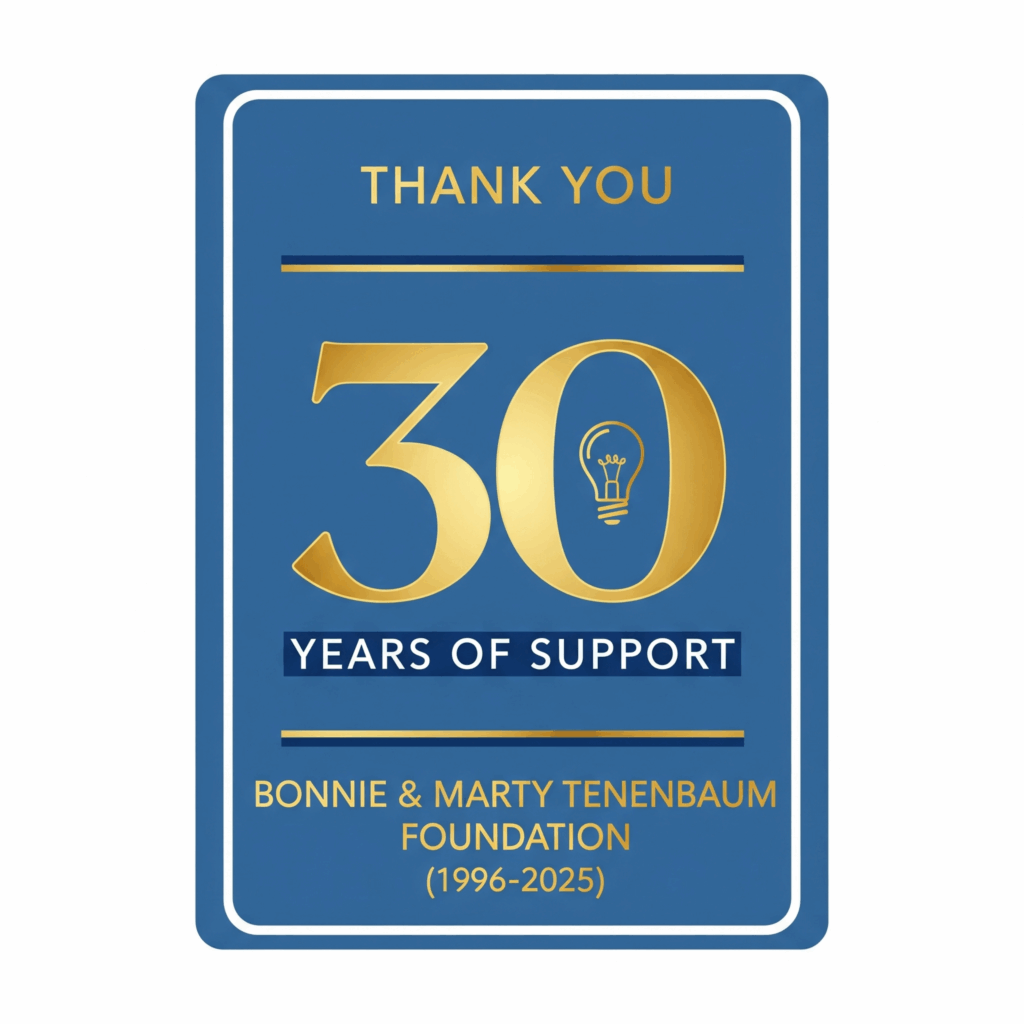Biomes of the World
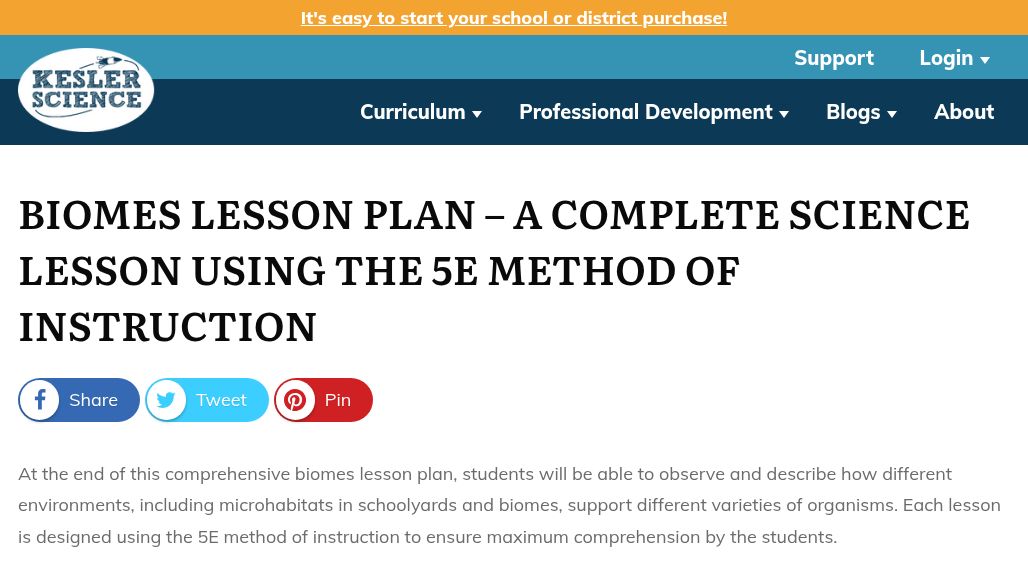
Biome Lesson Plan
At the end of this comprehensive biomes lesson plan, students will be able to observe and describe how different environments, including microhabitats in schoolyards and biomes, support different… learn more
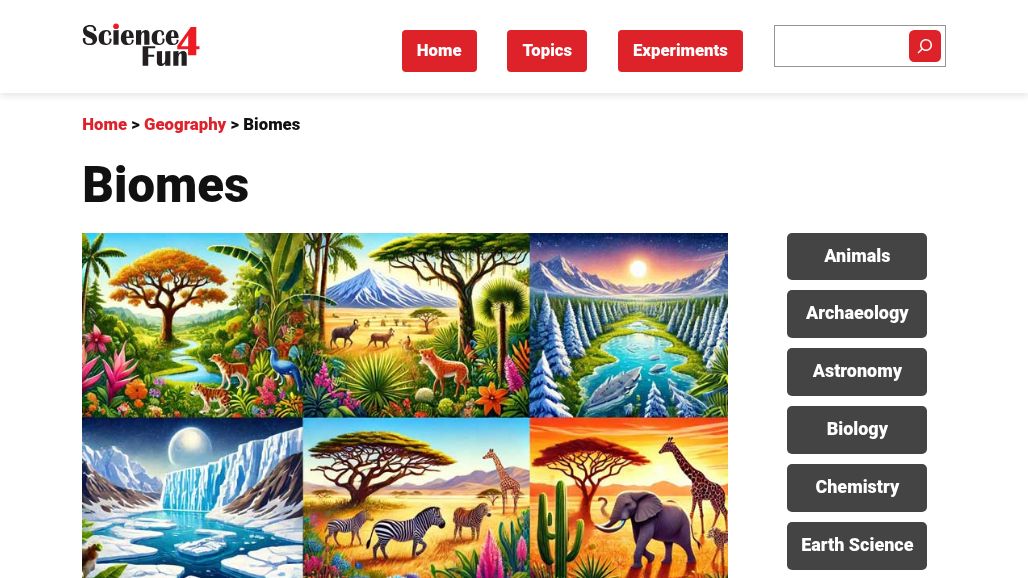
Science4Fun: Biomes
Biomes are the large and unique ecosystems that cover our Earth, with their unique climate, animals, and plants. Biomes shape the world around us, so studying them helps… learn more
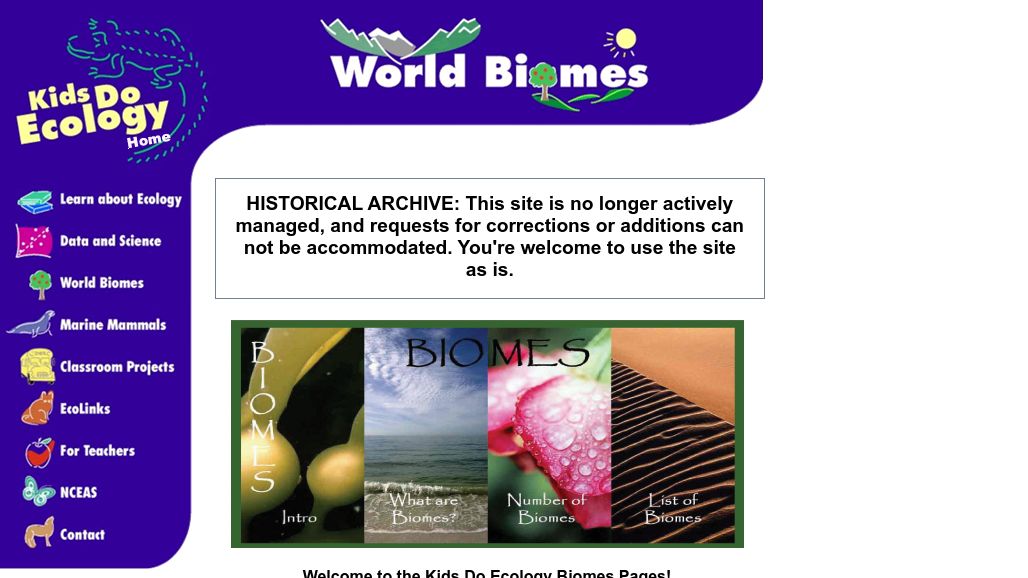
World Biomes
Biomes are regions of the world with similar climate (weather, temperature) animals and plants. There are terrestrial biomes (land) and aquatic biomes, both freshwater and marine. learn more

PBS LearningMedia: Regenerating a Rainforest Through the Power of Poop | Overview
This video highlights a nature-based, rainforest regeneration solution in Ecuador that uses "tree islands." This reforestation experiment plants patches of trees in deforested areas to attract animals, nature's… learn more
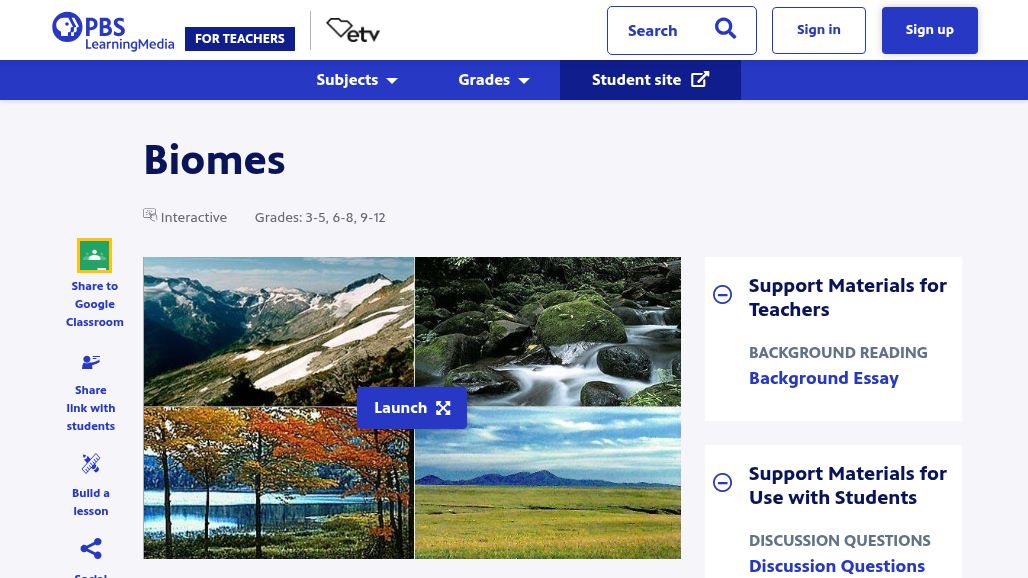
PBS LearningMedia: Biomes
The distribution of plants and animals around the world is anything but random. Instead, it is a result of the interplay of individual environmental tolerances of species and… learn more

20 Wild Ways To Explore Animal Habitats With Kids
Ready to explore animal habitats around the world, from rainforests to deserts and everything in between? These fun activities are just what you’re looking for. Take a walk… learn more
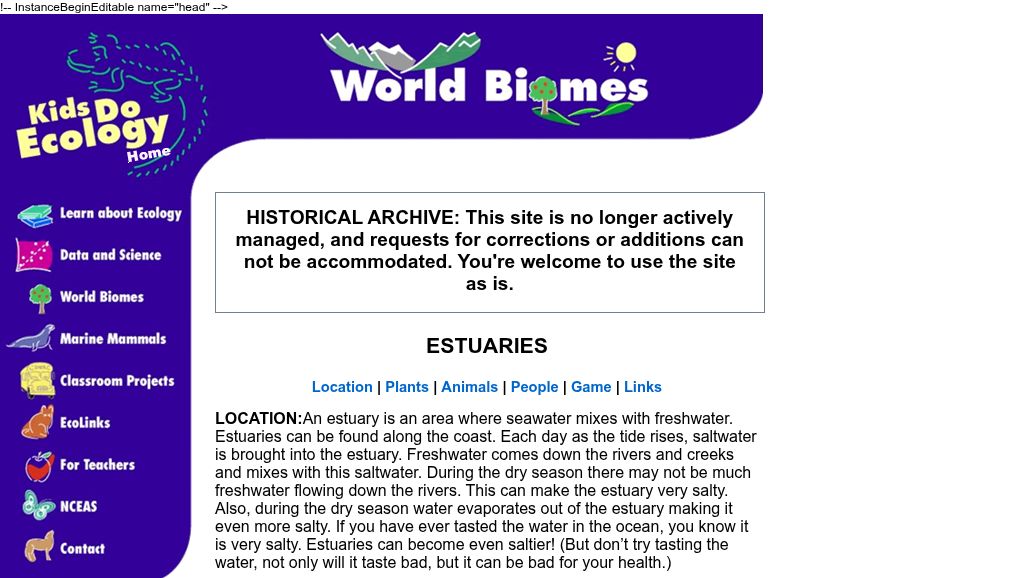
World Biomes: Estuary
NCEAS ecologists and teachers in Santa Barbara, Goleta, and Carpinteria schools are working with 5th grade classes to design and conduct scientific experiments in ecology. Students learn the… learn more
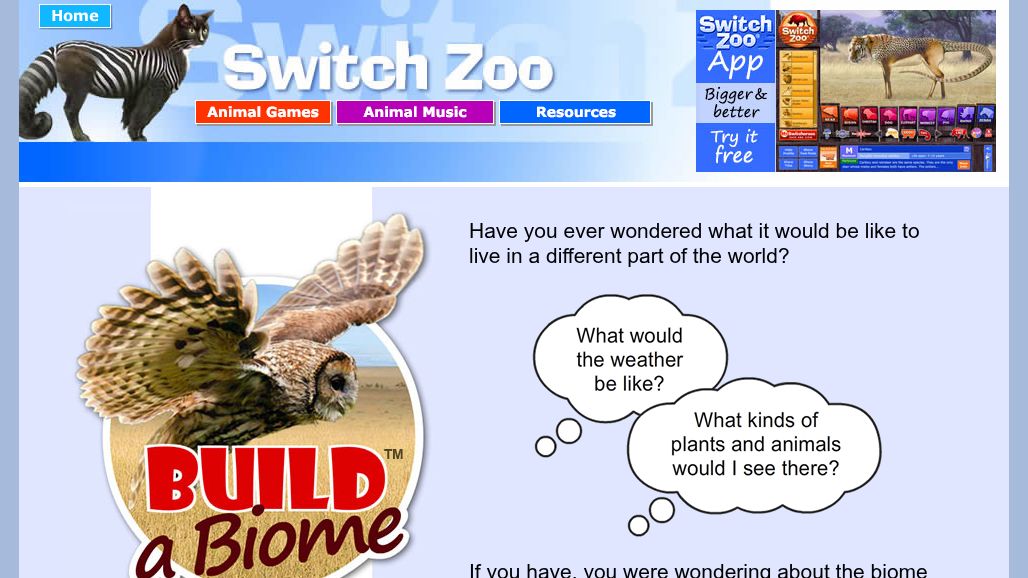
Build a Biome
Have you ever wondered what it would be like to live in a different part of the world? If you have, you were wondering about the biome of… learn more
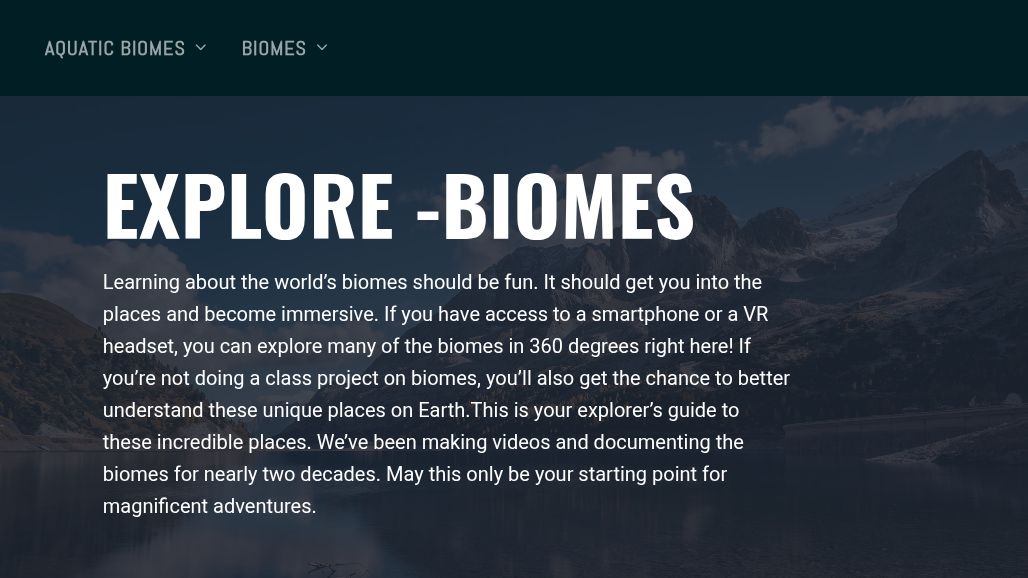
Biomes of the World in VR
Learning about the world’s biomes should be fun. It should get you into the places and become immersive. If you have access to a smartphone or a VR… learn more
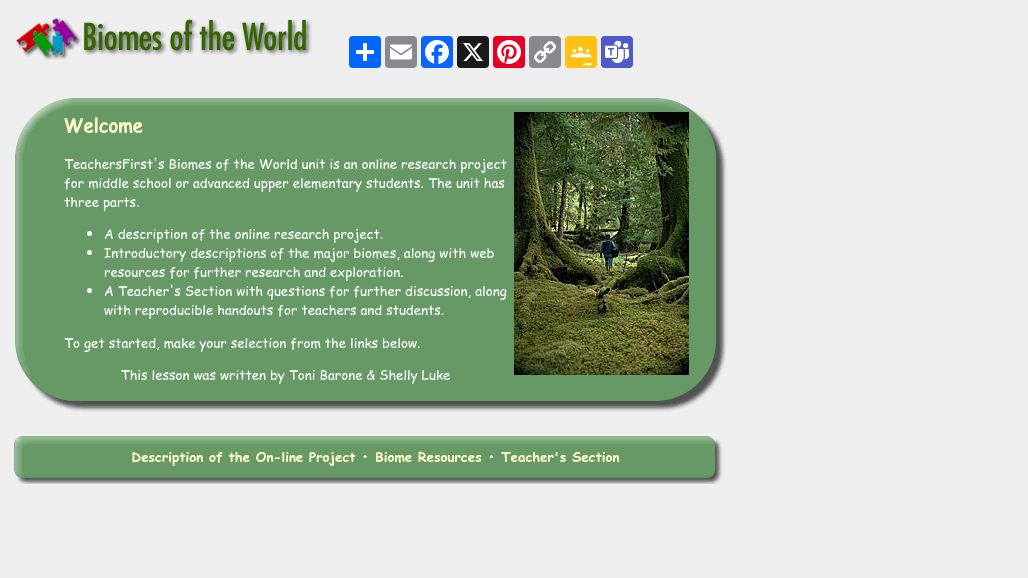
TeachersFirst: Biomes of the World
TeachersFirst's Biomes of the World unit is an online research project for middle school or advanced upper elementary students. The unit has three parts. A description of the… learn more
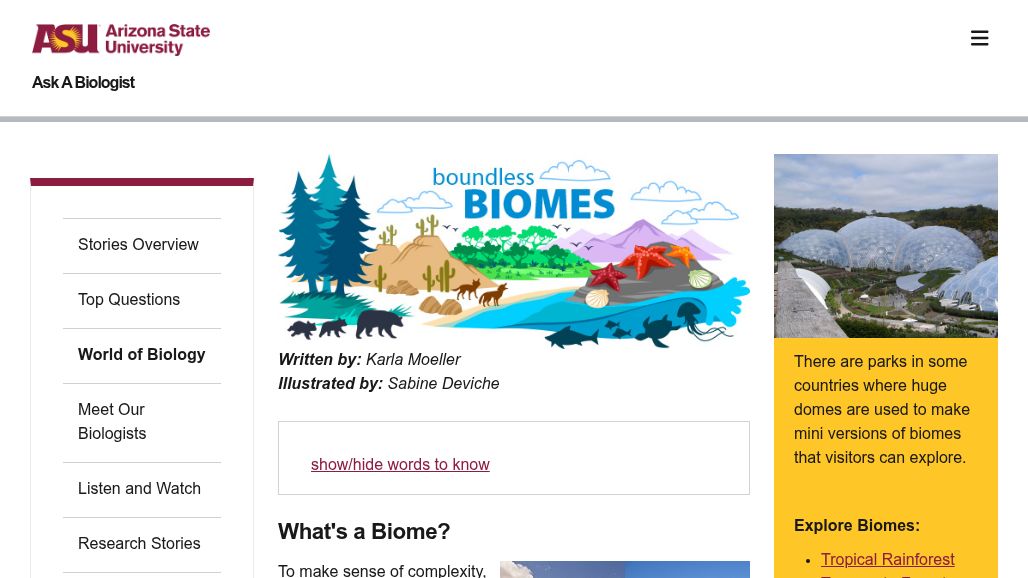
Biomes of the World
A biome is a type of environment that is defined by the types of organisms that live there. We can also think of these as life zones ("bio"… learn more
No websites match your current filters
– no items filtered –

